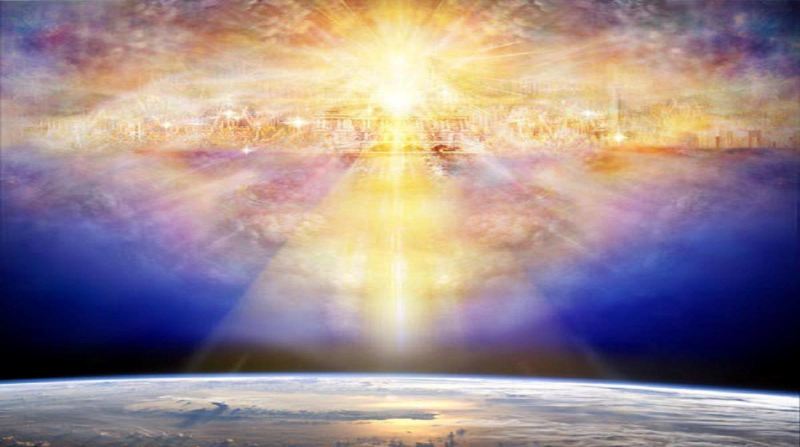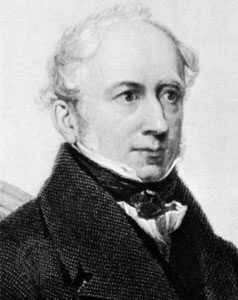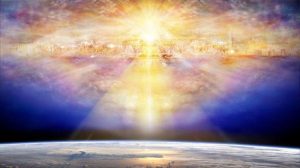A few weeks ago, I was at a meeting for fellowship and ministry in the pleasant town of Malvern in Worcestershire England. The brother serving gave an address on the Lord’s coming. He started with a story:
 An elderly sister had spoken to him recently, and said how she woke up during the night with troubles on her mind, especially those amongst the Christian group she was with. But there were others – the world, her family, herself – particularly her health. Then she said “Wouldn’t it be great if I woke up thinking, ‘This is the day the Lord is going to come!’ Wouldn’t that make a great difference to the day – and to me?”
An elderly sister had spoken to him recently, and said how she woke up during the night with troubles on her mind, especially those amongst the Christian group she was with. But there were others – the world, her family, herself – particularly her health. Then she said “Wouldn’t it be great if I woke up thinking, ‘This is the day the Lord is going to come!’ Wouldn’t that make a great difference to the day – and to me?”
The brother serving read from:
- Luke 12:45 ‘That bondman should say in his heart, My lord delays to come’
- 1 Peter 5:1 ‘The elders which are among you I exhort, who am their fellow-elder and witness of the sufferings of the Christ, who also am partaker of the glory about to be revealed’
- 1 Thess 4:17 ‘We, the living who remain, shall be caught up together with them in the clouds, to meet the Lord in the air; and thus we shall be always with the Lord’
This raises questions:
– Am I really looking forward for Him to come?
– Is there anything I ought to put right before He comes?
– Is what I plan to do today according to the Lord’s will?
He quoted J N Darby: ‘The expectation of the return of Christ is the exact measure (the thermometer, so to speak) of the life of the church’ (Collected Writings vol 2 – Prophetic 1 p 292 – Lecture 3 of 11 on ; The Hopes of the Church of God) – See also A Day of Small Things summary – The Second Coming of Christ [*]
This made me think of our Christian gatherings. How much does the hope of the Lord’s return (the rapture) feature in our meetings – an expectation – a hope. Is it the hope of troubles being ended, of divisions being over, of our poor old bodies being changed – or the hope of seeing our Saviour whom we love, and being with Him? Is it also the joy of knowing that at that time, Jesus will have His bride (us!) united to Him in glory. Is the degree of the expectation of Christ’s imminent return, the thermometer measuring our company’s spiritual warmth?
Darby wrote his poem ‘Hope’ in 1881, shortly before he was taken. Unlike many of his poems, it was written in the plural – the company rather than the individual.
And shall we see Thy face,
And hear Thy heavenly voice,
Well known to us in present grace!
Well may our hearts rejoice.
We wait to see Thee, Lord!
Yet now within our hearts
Thou dwell’st in love, that doth afford
The joy that love imparts.
Yet still we wait for Thee,
To see Thee as Thou art,
Be with Thee, like Thee, Lord, and free
To love with all our heart.
Little Flock 1962/1973 editions – Hymn no 270
Many of the churches in our area have websites. I have been looking at these, sometimes with blogs, or reproduced sermons, and often with a ‘Statement of Faith’ (either their own or that of the Evangelical Alliance, or in some cases the Nicene Creed[†].
There were traditional churches – Church of England, Baptist, Methodist
There were evangelical churches – Missions, FIEC affiliates, former Open Brethren
Many were charismatic and Pentecostal Churches with names such as: Kings Church , The Word House, King’s Treasure, New Life, Elim Pentecostal, the Incorruptible Word Ministries, The Redeemed Christian Church of God, The Redeemed Evangelical Church of Christ, Jesus Revival Ministries, Beulah Christian Fellowship, House of Favour, Peace & Love Assembly
What saddened me was that not a single one of these seemed to have any appreciation of the present living hope of the church – His imminent coming and the joy of being with Him. Their outlook appeared totally earth-bound – helping less fortunate people, enjoying exhilarating services, music with choirs and bands, youth outreach (now using social media) etc. I do not doubt that there are many real lovers of the Lord Jesus in those gatherings, with the full knowledge of their eternal salvation, and who have received and have the knowledge of the indwelling Holy Spirit. They have light of the Lord’s coming to take up His glorious kingdom on earth, but it is based on a ministry that is wholly earthly.
Even those citing the Lord’s return might be hazy doctrinally. The ‘Statements of Faith’ below†, seem not to distinguish between the rapture and the appearing and the millennium and eternity. I guess if these things are viewed as generations in the future, they do not appear important. Or are the church leaders wanting to avoid contention?
This does not just apply to the churches. There are many books on prophecy which accurately portray the future, based on the Bible. But they concentrate on events and judgments. The joy of our Saviour’s return is often lacking.
Of course, I may be mistaken, in some ways I would like to think that I was, and if there were more who had the light, joy and hope of the rapture, I would be immensely happy. I have not been to any services in these churches. I have not read every book on prophecy.
We can thank God there are some places which are different. I am aware of a couple of places who do not, nor would not, have websites, and where there is a true expectation of the Lord’s return – the meeting where we were till recently, and a nearby Gospel Hall where we know several who go there. Maybe there are other small companies of believers meeting separately, enjoying the Lord’s support and awaiting His return. But all this is very few in a conurbation of a quarter-million people.
May the Lord’s return be ever brighter in our hearts – and may the hope of it, and our desire to be with Him, affect our lives individually, and may it enliven our gatherings too.
May God bless you in 2018.
Sosthanes
[*] In ‘A Day of Small Things’, I have several articles on the rapture (mainly in summaries of J N Darby’ works – especially ‘The Present Hope of the Church’. These cover the dispensational teaching, and the reality of the rapture, which could happen at any time, since no prophecies have to be fulfilled first. More importantly, they also help us see the real hope – the real joy – our Lord and Saviour’s return, and our being with Him.
Some of these are:
- The Things which shall be Hereafter (Rev 1:19) – The Rapture
The Things which shall be Hereafter (Rev 1:19) – The Marriage of the Lamb - John Nelson Darby’s Prophetic Map
- A Brief Outline of the Books of the Bible – The Revelation
- A Brief Outline of the Books of the Bible – 1&2 Thessalonians
- A Brief Outline of the Books of the Bible – John
- The Lord is Coming Very Soon
- The Remnant of Israel
- About ADOSS – In the Last Days Perilous Times shall Come
[†] The new UK Evangelical Alliance’ New Statement of Faith states, ‘The personal and visible return of Jesus Christ to fulfil the purposes of God, who will raise all people to judgement, bring eternal life to the redeemed and eternal condemnation to the lost, and establish a new heaven and new earth’. The older Worldwide Statement reads, ‘The expectation of the personal, visible return of the Lord Jesus Christ in power and glory’. Also the ancient Nicine Creed (referenced by the Methodists) states, ‘I look for the resurrection of the dead, and the life of the world to come’.






